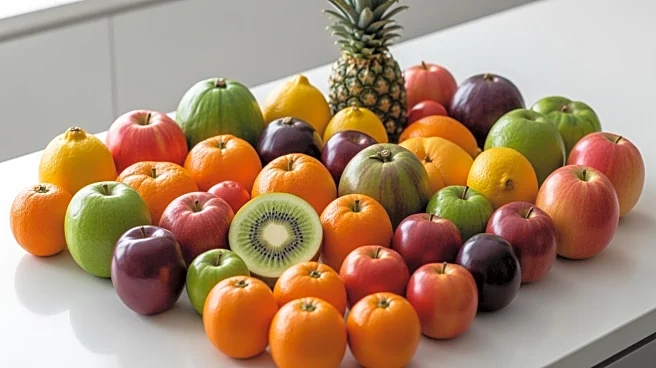What's Happening?
Unilever's Q3 2025 results reveal a strategic shift in its business focus, with food now comprising only 21% of its revenue, down from 50-60% in the 1990s. Despite this reduction, Unilever's food brands,
particularly Hellmann’s and Knorr, have demonstrated resilience with a 3.4% growth in sales driven by both price and volume increases. The company is in the process of demerging its ice cream business, which currently accounts for 16% of its revenue. This move is part of a broader strategy to prioritize beauty, wellbeing, and personal care products, which have seen double-digit growth. Unilever has also divested from its Russian business and its plant-based meat brand, The Vegetarian Butcher.
Why It's Important?
The shift in Unilever's portfolio highlights a significant trend in the consumer goods industry, where companies are increasingly focusing on high-growth sectors like beauty and personal care. This strategic pivot could impact stakeholders across the food and consumer goods industries, as Unilever's decisions may influence market dynamics and competitive strategies. The resilience of brands like Hellmann’s and Knorr suggests that traditional food products still hold value, even as the company shifts focus. This could reassure investors and partners about the stability of Unilever's food segment amidst broader changes.
What's Next?
Unilever is expected to complete the spin-off of its ice cream business, The Magnum Ice Cream Company, although the timeline has been delayed due to a US federal government shutdown. The company plans to retain a minority stake in the ice cream business. As Unilever continues to reshape its portfolio, the performance of its food brands will be closely monitored to assess their long-term viability and contribution to the company's overall strategy.
Beyond the Headlines
The demerger of the ice cream business and the focus on beauty and personal care could lead to a reevaluation of Unilever's brand identity and market positioning. The company's ability to maintain growth in its food segment amidst these changes will be crucial in determining its future market share and consumer loyalty. Additionally, the divestment from plant-based meat and the Russian market reflects broader geopolitical and consumer preference shifts that could have long-term implications for the industry.









